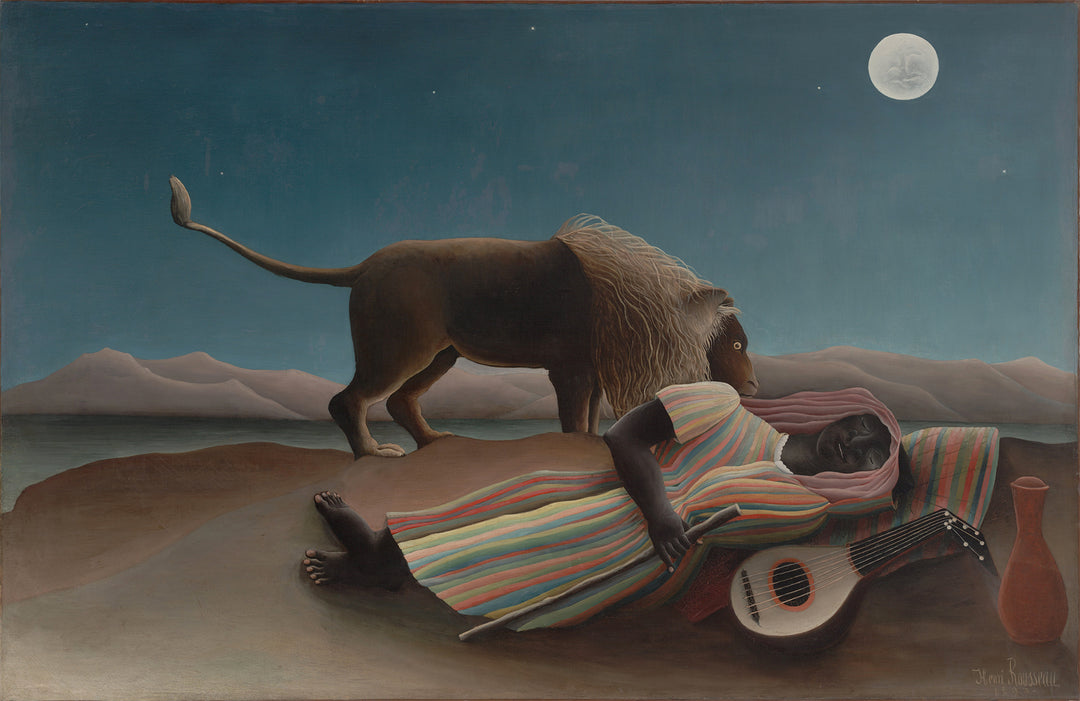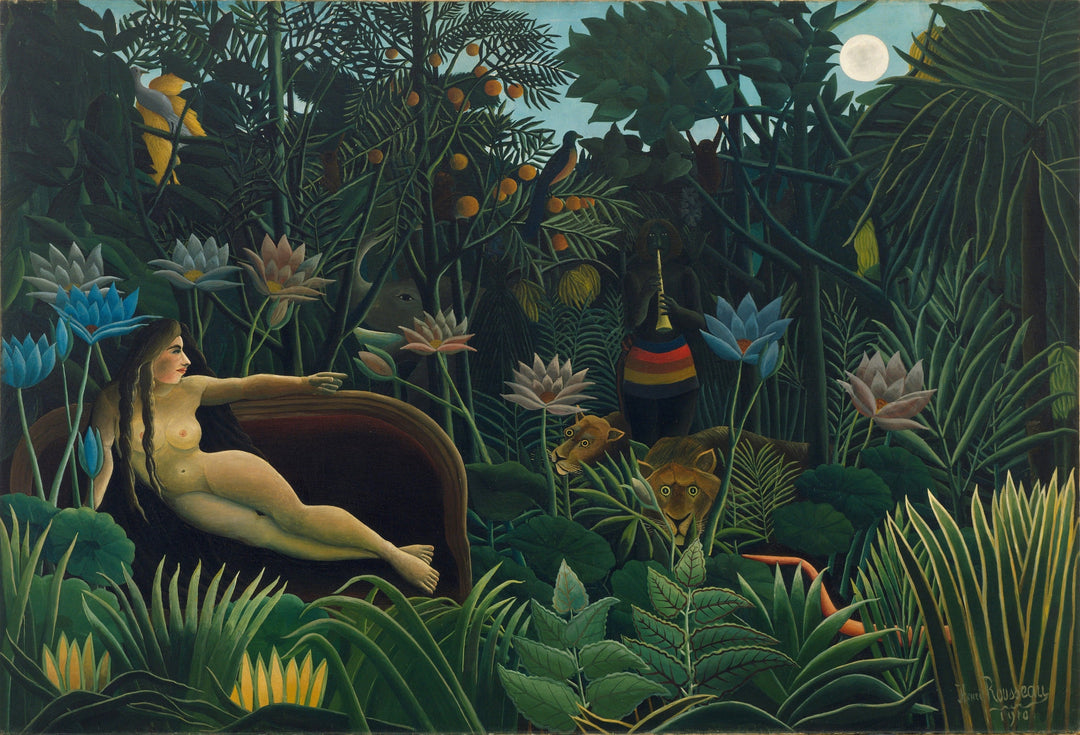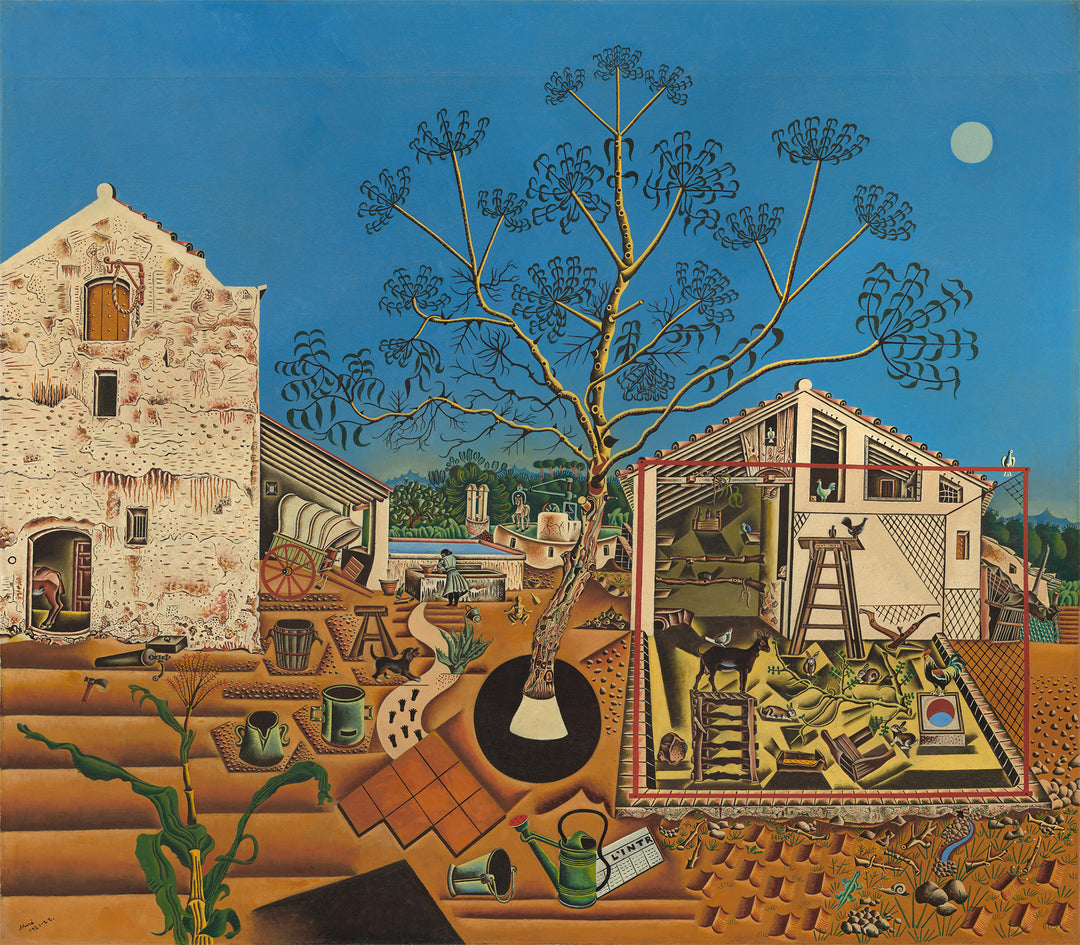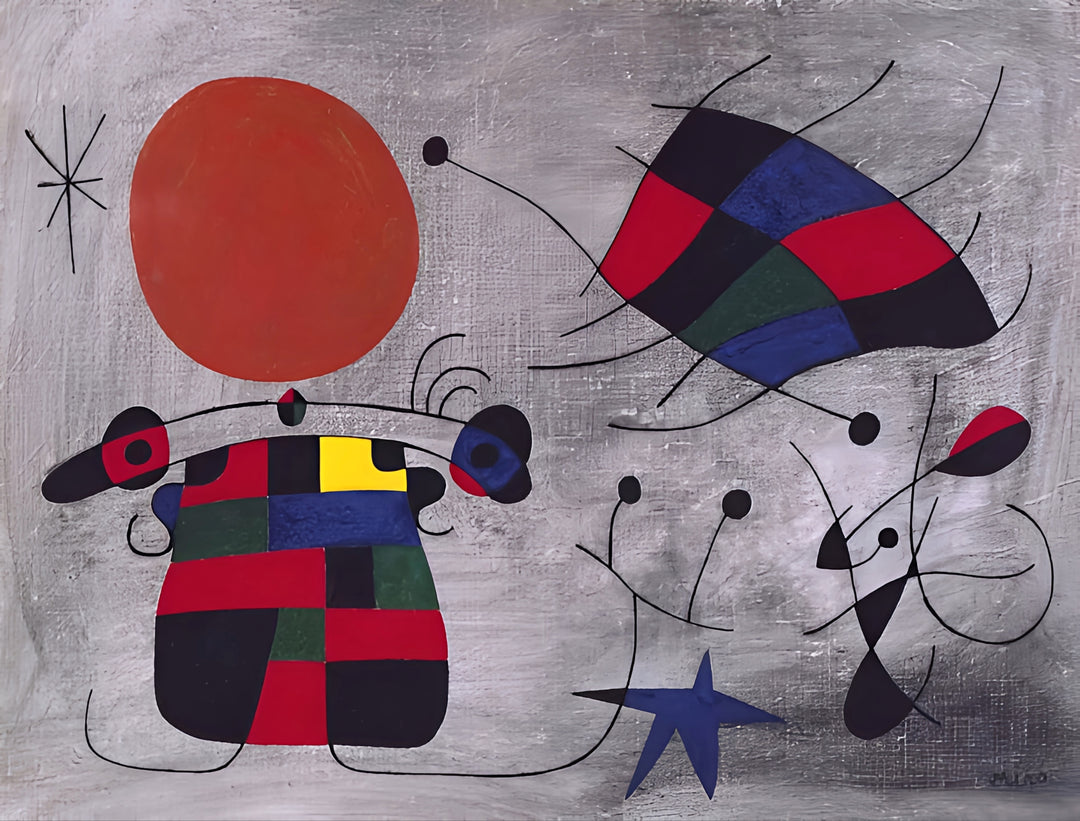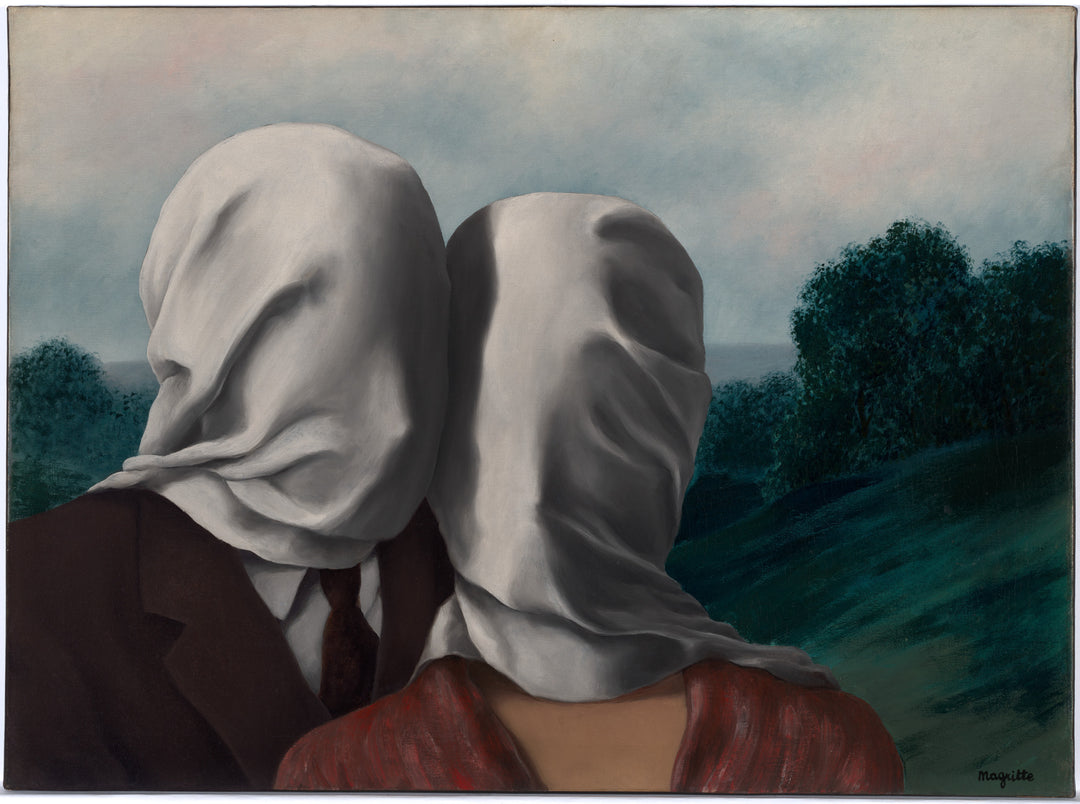
Surrealism
Surrealism, which emerged in the 1920s, is an artistic movement that sought to free the human mind from the constraints of logic and reason. Influenced by Sigmund Freud's theories of psychoanalysis, surrealism focuses on exploring the subconscious and dreams. Surrealist artists believed that by exploring these hidden aspects of the psyche, they could access a deeper and more authentic truth.
The movement Dadaist , with its rejection of established social and aesthetic norms, was a significant influence on the development of surrealism. The surrealists adopted the Dadaists' attitude towards irrationality and absurdity, but focused more on exploring the internal processes of the mind. Surrealism profoundly influenced several subsequent artistic movements, including the abstract art and the expressionism , by inspiring artists to seek new forms of expression beyond literal representation.
Among the most representative painters of surrealism are Salvador Dalí, René Magritte and Max Ernst. Dalí is known for his dreamlike landscapes and distorted images that defy logic. Magritte, on the other hand, explored ambiguity and paradox in his works, using common images in unexpected contexts to question reality. Ernst, with his frottage technique and collages, created fantastic and disturbing worlds that invite the viewer to reflect on the nature of perception and reality.








